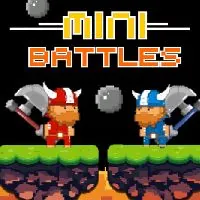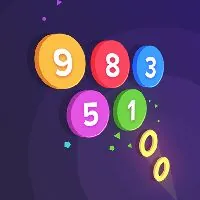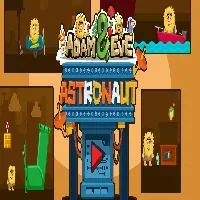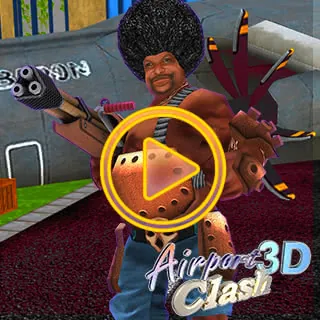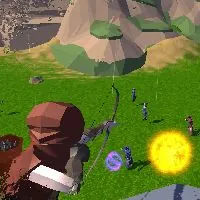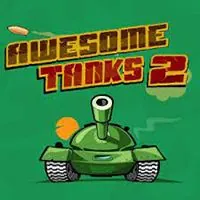BITLIFE
SIMILAR GAMES
Description
BitLife - GitLab Games
About BitLife - GitLab Games
Welcome to our comprehensive exploration of BitLife as it relates to the innovative platform of GitLab Games. We delve deep into the intersection of a popular life simulation mobile game and a robust collaborative software development platform. This article is designed to provide an in-depth understanding of how the principles and practices exemplified by GitLab Games can be conceptually applied, or even directly integrated, with the engaging world of BitLife. Our aim is to illuminate the potential for enhanced player experiences, community development, and creative expression within the BitLife ecosystem, drawing parallels with the powerful functionalities offered by GitLab.
The Essence of BitLife: A Digital Life Unfolding
BitLife stands as a remarkably popular mobile game that offers players the unparalleled opportunity to simulate an entire human life, from birth to death. Within this virtual sandbox, users make critical decisions that shape their character's destiny, influencing their education, career paths, relationships, health, and overall happiness. The game’s strength lies in its emergent storytelling capabilities, where a series of seemingly small choices can lead to dramatically different outcomes. Players can pursue a life of crime, ascend to the highest echelons of corporate power, dedicate themselves to artistic endeavors, or simply live a quiet, unassuming existence. The depth of customization and the sheer variety of life paths available ensure that no two playthroughs are ever truly alike, fostering a highly engaging and replayable experience. The game's intuitive interface, coupled with its vast array of possibilities, has captivated millions worldwide, making it a cornerstone of the mobile gaming landscape. The continuous updates and addition of new features keep the BitLife experience fresh and ever-evolving, further cementing its status as a leading simulation game.
Understanding GitLab Games: A Foundation for Collaboration and Innovation
GitLab Games, in essence, represents the application of the GitLab platform’s powerful features to the realm of game development and management. GitLab is an end-to-end DevOps platform, renowned for its integrated approach to the software development lifecycle. This includes source code management, continuous integration and continuous delivery (CI/CD), project management, and issue tracking. When these capabilities are focused on game development, they unlock new possibilities for streamlining workflows, fostering collaborative design, and enabling rapid iteration. GitLab Games can refer to projects hosted on GitLab that are game-related, or it can encapsulate the philosophy of using GitLab’s tools to build, test, and deploy games efficiently. The platform’s emphasis on version control ensures that every change is tracked, allowing for easy rollback and robust collaboration among developers. Its CI/CD pipelines automate crucial build, test, and deployment processes, significantly reducing manual effort and potential for error. This structured and systematic approach to development is what makes GitLab a powerhouse for complex software projects, and its potential impact on game creation is substantial.
Bridging BitLife and GitLab Games: Conceptual Synergies
The connection between BitLife and GitLab Games is not a direct, built-in feature of the game itself, but rather a conceptual synergy that can enhance how players interact with, contribute to, and experience the BitLife universe. Imagine applying the collaborative and organizational power of GitLab to the creative endeavors that BitLife inspires. For instance, players often share their unique life stories, career achievements, or extravagant virtual estates. GitLab Games principles could facilitate more organized sharing and cataloging of these player-generated narratives. Think of community-driven content creation, where players contribute ideas for new features, scenarios, or even custom items within BitLife. A platform structured like GitLab could manage these contributions, track their development, and even allow for community voting on which ideas to implement. This mirrors the open-source ethos that GitLab champions, fostering a more engaged and participatory player base.
Version Control for Life Paths: Tracking Player Journeys
One of the core tenets of GitLab is version control. While BitLife itself tracks a single player’s life, the concept can be extended to how players manage and compare multiple playthroughs or experiment with different life choices. Consider a scenario where a player wants to meticulously document several distinct life paths to achieve specific in-game goals. Instead of relying on scattered notes or memory, a system inspired by GitLab’s version control could allow players to “commit” to specific life milestones or significant choices. Each “commit” could represent a major decision point or a defined era of their simulated life, enabling them to easily revisit past branches of their simulated existence. This granular tracking could be invaluable for achievement hunters or those aiming to master the game’s complex systems. Furthermore, this approach could lay the groundwork for community challenges where players share their meticulously controlled life paths, providing insights into optimal strategies for various outcomes. The ability to revert to previous states, a hallmark of GitLab’s version control, would empower players to experiment without fear of losing progress on a desired path.
Continuous Integration and Delivery in BitLife Scenarios
The CI/CD (Continuous Integration and Continuous Delivery) pipelines found in GitLab are all about automating the build, test, and deployment process. While BitLife doesn't have game developers in the traditional sense, the concept of CI/CD can be metaphorically applied to the development and integration of user-generated content or community challenges. If BitLife were to officially incorporate more player-created content, a GitLab-like system could manage the submission, review, and integration of these elements. Imagine players submitting custom job descriptions, random events, or even new character traits. A CI/CD pipeline could automate the validation of these submissions, ensuring they adhere to game mechanics and quality standards, before they are merged into the main game experience. This would allow for a much more dynamic and responsive game world, where community contributions are seamlessly integrated, providing a constant stream of fresh content and preventing stagnation. The automation aspect ensures that new content can be rolled out frequently and reliably, keeping the player base engaged and excited about what's next.
Project Management and Issue Tracking for Community Goals
GitLab excels at project management and issue tracking, essential for coordinating complex development efforts. In the context of BitLife, this translates to how communities organize themselves to achieve shared objectives or propose improvements. Players often form guilds or groups within BitLife to tackle specific challenges, such as achieving a collective high score in a particular category or completing a community-wide event. GitLab’s integrated issue tracking system could be adapted to manage these community goals. Players could create “issues” for specific tasks, assign them to members, track their progress, and discuss solutions. This structured approach would bring order to community initiatives, making them more effective and transparent. For example, a community aiming to collectively unlock a new in-game achievement could use an issue tracker to break down the necessary steps, identify bottlenecks, and coordinate efforts efficiently. This not only enhances the gaming experience but also fosters a stronger sense of camaraderie and shared purpose among players. The ability to link issues to code changes or merge requests in a traditional GitLab setup could be paralleled by linking player contributions or completed tasks to the overall community goal.
Collaborative Storytelling and Modding Potential
The inherent narrative nature of BitLife makes it ripe for collaborative storytelling and, potentially, modding. While BitLife is not officially a moddable game, the desire for user-generated content and expanded possibilities is evident. If GitLab Games principles were applied, a structured environment could be created for players to collaboratively write branching narratives or design intricate scenarios. This could involve players contributing dialogue options, character backstories, or even entirely new questlines, all managed through a GitLab-like system. The version control would be crucial here, allowing for multiple authors to contribute to a story without overwriting each other’s work, and enabling easy review and merging of different narrative branches. This approach has the potential to transform BitLife into a dynamic, community-driven storytelling engine, where the game world is constantly expanded and enriched by the creativity of its players. This level of engagement goes beyond typical gameplay, fostering a true sense of co-ownership and creative participation.
The GitLab Games Platform as a Community Hub for BitLife Enthusiasts
The GitLab Games platform, or a similar framework, could serve as an ultimate community hub for dedicated BitLife enthusiasts. Beyond just sharing tips and tricks, this platform could host organized tournaments, collaborative content creation projects, and even fan-made extensions or simulations inspired by BitLife. Imagine a dedicated space where players can submit proposals for new game features, which are then managed, discussed, and voted upon using GitLab’s project management tools. The potential for GitLab's CI/CD to automate the testing and integration of such community-proposed features, if the game developers were to adopt such a system, is immense. This would create a direct feedback loop between the player base and the game’s development, leading to a game that is more responsive to player desires and consistently evolving with fresh, community-approved content. The use of GitLab’s robust infrastructure would ensure that these collaborative efforts are managed efficiently and professionally, providing a stable and reliable environment for players to connect and contribute.
Future Possibilities: BitLife as an Open-Source Inspired Project
Looking towards the future, the principles championed by GitLab Games could pave the way for BitLife to embrace an open-source inspired model, at least in terms of community contributions. While the core game engine might remain proprietary, the framework for submitting, reviewing, and integrating player-created content could be built using GitLab’s functionalities. This would allow players to contribute not just ideas, but potentially even code snippets for new game mechanics, assets, or narrative elements, all managed through a transparent and collaborative process. Such an approach would undoubtedly foster an even more passionate and invested community, transforming BitLife from a game into a living, evolving digital world shaped by its players. The success of open-source projects hinges on effective collaboration and transparent development, principles that GitLab embodies, making it an ideal model for the future growth and expansion of BitLife. The ability to host and manage diverse community contributions, from simple text-based events to complex gameplay mechanics, would be greatly facilitated by GitLab’s comprehensive toolset.
Conclusion: A Vision for Enhanced BitLife Experiences Through GitLab Principles
In conclusion, while BitLife and GitLab Games operate in distinct spheres, the underlying principles of collaboration, version control, automated processes, and structured project management that define GitLab offer a compelling vision for the future of BitLife. By conceptually applying GitLab’s powerful functionalities, we can envision enhanced player engagement, more robust community-driven content creation, and a more dynamic and responsive game experience. The potential for GitLab Games to serve as a framework for managing community contributions, tracking player-generated narratives, and streamlining the integration of new content is significant. This synergy promises to elevate BitLife from a single-player simulation to a truly interactive and collaboratively built digital world, all made possible by the innovative spirit of platforms like GitLab. The integration of these powerful development paradigms could unlock new dimensions of gameplay and community interaction for BitLife players.
BitLife - GitLab Games
About BitLife - GitLab Games
In the dynamic landscape of digital entertainment and interactive simulations, the concept of "games" often transcends traditional gameplay mechanics. We delve into a unique intersection where the practicalities of software development meet the engaging possibilities of simulation, specifically exploring the realm of BitLife within the context of GitLab Games. This examination aims to illuminate the multifaceted nature of such projects, highlighting how established simulation genres can find novel expressions and applications within a collaborative, open-source development environment like GitLab. Our focus is on understanding the inherent potential and the emergent strategies that define BitLife experiences when integrated with the collaborative ethos of GitLab Games.
Understanding BitLife: A Life Simulation Phenomenon
BitLife has captivated a vast audience by offering an incredibly detailed and open-ended life simulation experience. Players are presented with the opportunity to guide a character from birth to death, making crucial decisions at every stage. These decisions span a wide spectrum, from educational and career choices to relationship management, financial investments, criminal activities, and even the pursuit of personal happiness or notoriety. The core appeal of BitLife lies in its remarkable replayability and the sheer scope of possibilities it presents. Each playthrough is a unique narrative, shaped entirely by the player's choices and the sometimes unpredictable outcomes that follow. The simulation meticulously tracks character attributes, life events, and their long-term consequences, fostering a deep sense of agency and immersion.
The intricate mechanics of BitLife involve managing character stats such as health, happiness, intelligence, and attractiveness. Players can choose to pursue academic excellence, build a successful career, amass wealth, engage in risky behaviors, or strive for a quiet, uneventful existence. The game's narrative generation is remarkably robust, allowing for spontaneous events, unexpected challenges, and the unfolding of complex social dynamics. This depth of simulation makes BitLife more than just a casual pastime; it's a digital sandbox for exploring life's myriad paths and consequences. The constant updates and additions to the game, introducing new features, career paths, and life events, ensure that the BitLife experience remains fresh and engaging for its dedicated player base.
GitLab Games: A Collaborative Ecosystem for Innovation
GitLab Games, on the other hand, represents a commitment to fostering innovation through collaboration and open-source development. It is a platform that champions the creation, sharing, and evolution of diverse gaming projects. The essence of GitLab Games lies in its ability to bring together developers, designers, and enthusiasts from around the world to contribute to a shared vision. By leveraging the power of version control, continuous integration, and collaborative workflows inherent to GitLab, projects can be developed with transparency, efficiency, and collective intelligence. This approach not only democratizes game development but also allows for experimentation and the rapid iteration of ideas.
The GitLab Games initiative provides a robust infrastructure for managing the entire lifecycle of a game project. From initial concept and coding to testing, deployment, and community engagement, every aspect is facilitated by GitLab's powerful features. This collaborative environment encourages the development of a wide range of game genres, from simple arcade-style games to complex simulations and experimental interactive experiences. The open-source nature of many projects hosted under GitLab Games means that the community can directly contribute to their improvement, suggest new features, and even fork projects to pursue their own unique directions. This fosters a vibrant ecosystem where creativity flourishes and innovative gaming concepts can take root and grow.
The Convergence: BitLife within the GitLab Games Framework
When we consider the integration of a BitLife-like simulation within the GitLab Games framework, we enter a fascinating space of collaborative creation and iterative development. Imagine a project that takes the core principles of BitLife – life simulation, player choice, and narrative consequence – and enhances them through the collective input of a global community. This convergence offers several compelling advantages and opens up new avenues for gameplay and development.
- Community-Driven Feature Development: The GitLab Games platform allows for a decentralized approach to expanding the BitLife experience. Community members can propose, develop, and implement new features, careers, challenges, and life events. This can lead to an explosion of content far exceeding what a single development team could produce.
- Enhanced Realism and Complexity: With contributions from diverse backgrounds and expertise, a BitLife simulation on GitLab Games could achieve unprecedented levels of realism. Specialists in economics, sociology, psychology, or even specific historical periods could contribute modules that add profound depth to the simulation.
- Open-Source Exploration of Life Paths: The open-source nature means that the fundamental code and mechanics of the BitLife simulation can be examined, understood, and even forked by anyone. This transparency can lead to new discoveries about simulation design and foster educational opportunities for aspiring game developers.
- Rapid Iteration and Bug Fixing: The collaborative workflow of GitLab allows for rapid identification and resolution of bugs. Community members can report issues, and developers can quickly implement fixes, leading to a more stable and polished gaming experience.
- Diverse Thematic Interpretations: A BitLife simulation hosted on GitLab Games could evolve into numerous thematic variations. Imagine specialized versions focusing on historical eras, specific professions, or even fantastical scenarios, all stemming from a common core simulation engine.
Potential Features for a GitLab Games BitLife Project
A BitLife-inspired project under the GitLab Games umbrella could aim to expand upon the established formula in numerous exciting ways. We envision a simulation that not only replicates the core elements of life management but also introduces novel mechanics driven by community input and technological advancements.
Advanced Career Paths and Skill Trees
Beyond the standard careers, we could implement intricate career progression systems with deep skill trees. Players would invest experience points earned through in-game actions into specific skills, unlocking specialized roles, higher salaries, and unique job-related events. For example, a medical career could branch into surgery, research, or public health, each with its own set of challenges and rewards. Similarly, creative fields could involve mastering specific artistic techniques or business management skills.
Dynamic Economic and Societal Systems
A key area for enhancement would be the simulation of dynamic economic and societal systems. This would involve more complex market fluctuations, inflation, and the impact of global events on individual finances. Societal changes, such as evolving social norms, political shifts, and technological advancements, could also directly influence character opportunities and challenges. Imagine dealing with the impact of automation on job markets or navigating a society with shifting ethical considerations.
In-depth Relationship and Family Dynamics
The simulation of relationships and family dynamics could be significantly deepened. This would include more nuanced emotional interactions, the impact of personality traits on compatibility, and the long-term consequences of family decisions. We could introduce mechanics for generational wealth transfer, complex sibling rivalries, and the challenges of raising children with diverse personalities and needs. The impact of divorce, reconciliation, and the extended family network would also be thoroughly simulated.
Procedural Generation of Life Events and Scenarios
To maximize replayability and unpredictability, we would heavily utilize procedural generation of life events and scenarios. This means that random events, opportunities, and crises would be generated dynamically based on the player's current life stage, choices, and the simulated environment. This could range from encountering a chance business opportunity to surviving a natural disaster or stumbling upon a hidden talent. The system would learn from player interactions to create increasingly relevant and challenging events.
Player-Created Content and Modding Support
A fundamental aspect of a GitLab Games project would be robust player-created content and modding support. This would empower the community to design their own careers, items, events, and even entirely new gameplay mechanics. Through clear APIs and documentation, users could contribute to the game's expansion in ways that align with their creative visions, fostering a rich and ever-evolving ecosystem of user-generated content.
Ethical Dilemmas and Moral Choices
To add further depth and philosophical exploration, we would integrate challenging ethical dilemmas and moral choices. These decisions would have far-reaching consequences, impacting character reputation, relationships, and even their ultimate fate. Players would be forced to confront complex moral quandaries, exploring themes of fairness, justice, personal gain versus the greater good, and the subjective nature of morality in a simulated world.
The Development Process on GitLab Games
The development of a BitLife-like simulation within the GitLab Games framework would leverage the full suite of GitLab's collaborative tools. This process is designed to be transparent, iterative, and community-driven, ensuring that the final product is a robust and engaging experience shaped by collective effort.
Version Control and Branching Strategies
At the core of our development would be GitLab's powerful version control system. This allows every piece of code, asset, and design document to be tracked, managed, and reverted if necessary. We would employ well-defined branching strategies, such as Gitflow, to manage different development streams – feature branches for new content, release branches for stable versions, and hotfix branches for urgent bug fixes. This ensures that development is organized and that the main codebase remains stable.
Continuous Integration and Continuous Deployment (CI/CD)
We would implement Continuous Integration and Continuous Deployment (CI/CD) pipelines. Every time a developer pushes changes to the repository, automated tests would run to verify the integrity of the code. This catches errors early in the development cycle, preventing them from accumulating and becoming harder to fix. Successful builds would then be automatically deployed to staging or production environments, allowing for rapid testing and feedback loops. This CI/CD approach ensures a consistent flow of updates and improvements.
Issue Tracking and Project Management
GitLab's integrated issue tracking system would be paramount for managing the development workflow. Bugs, feature requests, and general tasks would be meticulously logged, prioritized, and assigned to team members. The system allows for detailed descriptions, screenshots, and discussions, ensuring that all relevant information is readily available for each task. This transparent tracking mechanism keeps the entire team informed about project progress and individual responsibilities.
Collaboration and Code Review
Collaboration and code review are fundamental to the GitLab Games ethos. When a developer completes a feature or fix, they would submit a Merge Request. This triggers a review process where other team members examine the code, provide feedback, and suggest improvements. This collaborative review process not only enhances code quality but also facilitates knowledge sharing and promotes best practices among the development team. Discussions within merge requests ensure that all changes are well-understood and agreed upon before being merged into the main project.
Community Contributions and Governance
For a BitLife project within GitLab Games, we would actively encourage and manage community contributions. Clear guidelines would be established for submitting code, reporting bugs, and suggesting features. A governance model would be put in place to review and merge community contributions, ensuring that they align with the project's overall vision and quality standards. This model might involve designated maintainers or a community-elected committee to oversee decision-making and maintain project direction.
The Future of BitLife-Inspired Simulations on GitLab Games
The integration of BitLife's compelling life simulation mechanics with the collaborative power of GitLab Games represents a significant leap forward in how interactive entertainment can be conceived, developed, and evolved. This convergence promises an experience that is not only deeply engaging but also continuously refined by a passionate global community. We foresee a future where such projects become living simulations, constantly adapting to new ideas and technological advancements.
The potential for educational applications is also immense. A well-developed BitLife simulation on GitLab Games could serve as a powerful tool for teaching complex concepts related to economics, sociology, decision-making, and consequence. Students could experiment with different life choices in a safe, simulated environment, gaining valuable insights into the multifaceted nature of life and societal interactions. Furthermore, the open-source nature allows for educational institutions to adapt and customize the simulation for specific learning objectives.
Ultimately, the synergy between BitLife's sophisticated simulation and GitLab Games' collaborative framework paves the way for truly groundbreaking interactive experiences. It is a testament to the power of collective intelligence and the boundless possibilities that emerge when creativity is nurtured in an open, supportive, and technologically advanced environment. This endeavor is not merely about creating a game; it is about building a dynamic, evolving digital world that reflects the complexities and wonders of life itself, shaped by the collective ingenuity of its participants.
Play BitLife for free on GitLab Games, where we offer a dynamic platform featuring thousands of the best unblocked games online. Our extensive library ensures pure enjoyment with an ad-free experience, keeping you immersed in the action without distractions. Accessible from school, work, or home, our Gitlab games deliver seamless fun anywhere you are. We’ve streamlined the experience—play effortlessly with your keyboard or a simple click, tailored to how you like to game. Dive into our collection of unblocked games, including popular categories like unblocked games 66, unblocked games wtf and cool math games Gitlab, and enjoy entertainment that’s always within reach and endlessly captivating.
